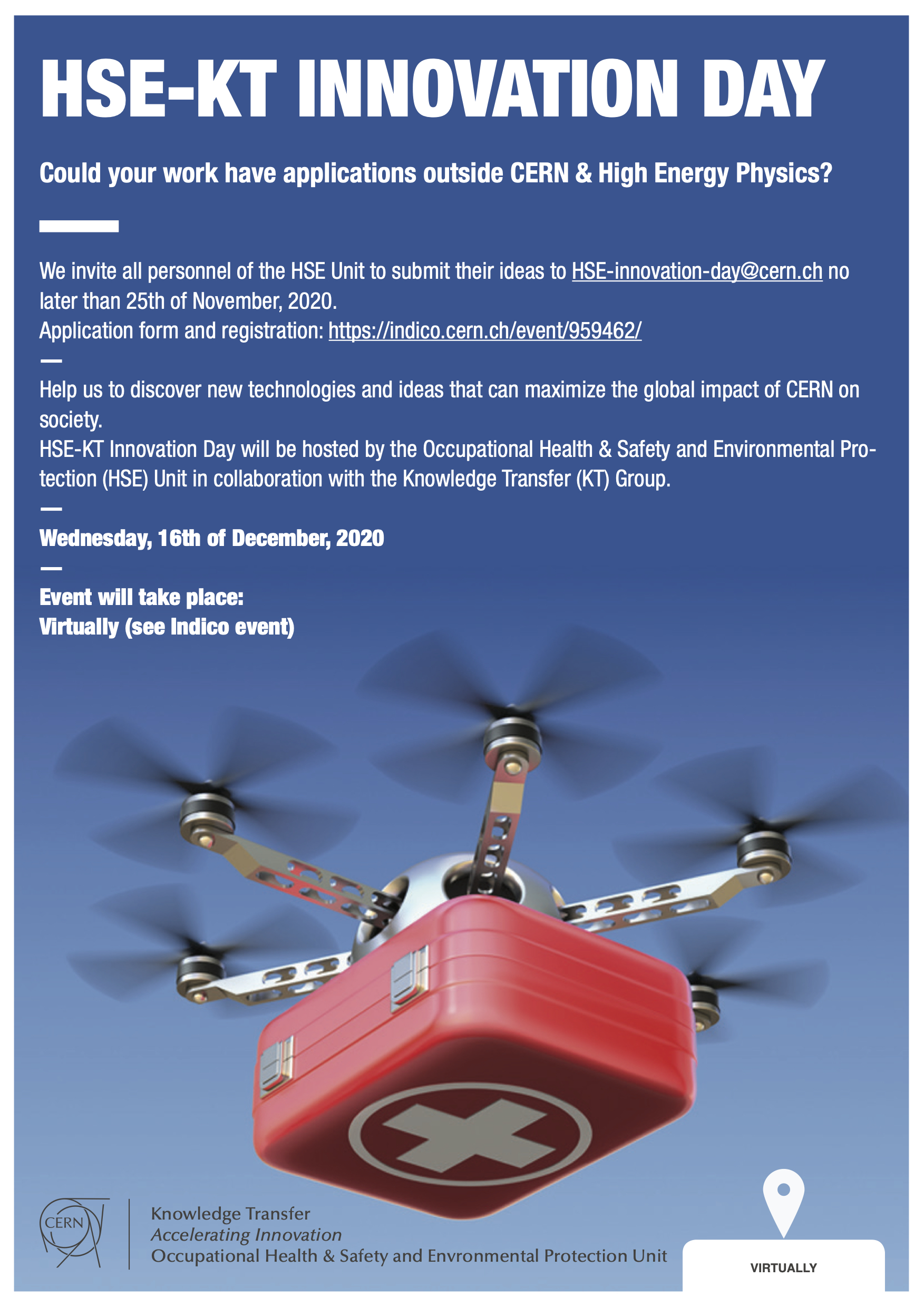On 16 December 2020, the Occupational Health & Safety and Environmental Protection (HSE) Unit, in collaboration with the CERN Knowledge Transfer group, held the first HSE-KT Innovation Day. In contrast to past Knowledge Transfer (KT) innovation days with the Accelerators and Technology Sector (ATS) and the Experimental Physics (EP) department, this year, the event was held entirely online, with over fifty participants joining to discover new opportunities and ideas for technologies with potential applications outside High-Energy Physics.
The event began with an introduction from Giovanni Anelli, head of the CERN Knowledge Transfer group, and Manuela Cirilli, head of Medical Applications in the same group, followed by Benoit Delille, the new Head of the HSE Unit. During the morning, participants also had the opportunity to watch outstanding presentations from the HSE personnel on the possible applications of their research in society to promote the positive impact of CERN in Member States and beyond.
- Andriy Boychenko presented the CERES, the CERN Chemical Register for Environment, Health and Safety, a new web-based tool aiming to build a centralised inventory of chemical risks to assist in emergency preparedness. The tool might have wider uses in any industry working with environmental and chemical risk management, as well as emergency and rescue services.
- Saverio La Mendola explained how the outcomes of the FIRIA beyond CERN project could provide an approach to better assess fire and radiological release risks in complex facilities, which could reduce the risk of severe consequences to the population and the environment.
- Jose Carlos Gascon presented his project for the qualification and development of radiation-resistant polymer compounds, the outcomes of which could benefit CERN and the wider cabling market, such as cable manufacturers that supply to nuclear facilities and medical facilities that use radiation equipment.
- Vaclav Lhota presented an innovative technology called Rail Runner, a suspended monorail robotic carrier, designed for rapid, safe and autonomous LHC tunnel interventions. The concept may also be suitable for service tunnels and larger industrial or commercial structures in industry requiring autonomous fire and safety solutions.
- Jordan Minier presented a low-cost solution for pro-active control of CERN’s noise footprint, the monitoring of which is a priority for the Organization. Developing a low-cost noise monitoring solution could be of interest not only to tackle the issue in cities, but also for large industrial plants, construction projects, and airports.
- Andre Henriques presented the CARA project, developed to better understand and quantify the risk of airborne spread of SARS-CoV-2 virus in workplaces. CARA provides scientific-based guidance to space managers with a flexible approach adapted to different areas. As a result, the technology can be optimised to work in any indoor place, such as offices, public spaces, places, buses, shops, etc., helping organizations to stay below critical concentrations of airborne virus.
The outcome of the HSE-KT Innovation Day was a success, with a lot of questions and comments, exchange of innovative ideas, and enthusiasm between all the participants. The speakers were encouraged to discuss their ideas further with the Knowledge Transfer group, in case they may be eligible for support from the KT fund or Medical Application budget.

